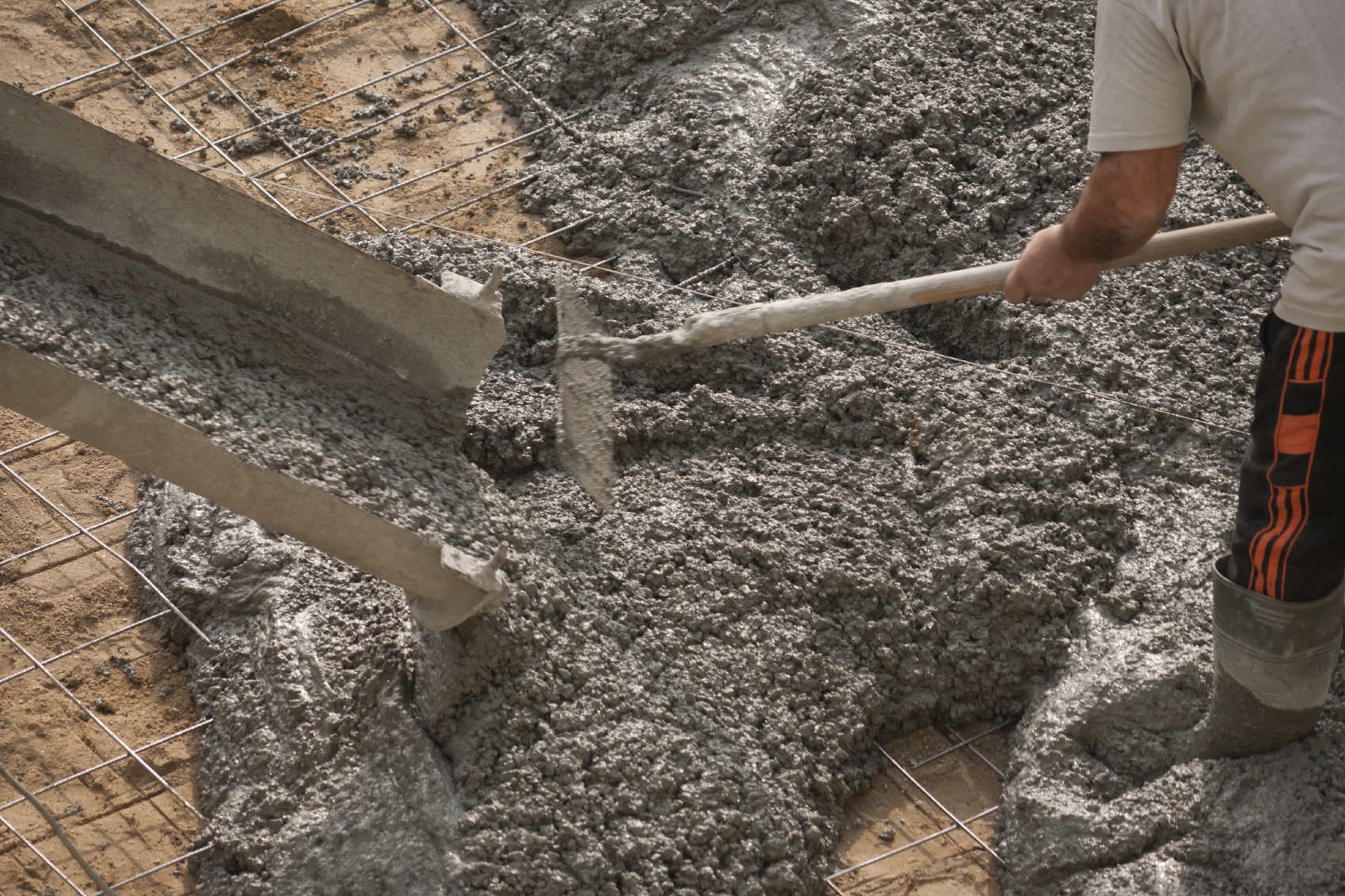West Coast General Engineering concrete foundation: How It Supports Large-Scale Industrial Structures
West Coast General Engineering concrete foundation: How It Supports Large-Scale Industrial Structures
Blog Article
The Important Function of Concrete Structure in Structural Stability and Longevity
When it comes to developing a residential or commercial property, the foundation is much more crucial than you may assume. Concrete foundations offer unparalleled toughness and durability, ensuring your framework can endure numerous environmental difficulties. Without a strong base, you take the chance of potential concerns like moving or breaking, which can compromise safety and worth. Recognizing the subtleties of concrete structures can be the key to maintaining your financial investment for many years to find. What should you think about following?
Recognizing the Value of Concrete Foundations
Concrete foundations are essential to the overall stability of any type of structure, as they give the vital support needed to endure different loads and ecological problems. When you assume about building a home or a commercial area, the foundation is the first thing you need to take into consideration. It acts as a barrier against wetness, safeguarding your building from water damages. A well-placed concrete structure additionally stops settling and moving, which can cause cracks in wall surfaces and floors. You'll wish to ensure that the foundation is effectively made and reinforced, as this affects the durability of your building. Additionally, a solid structure can boost power performance by reducing air leakages. Bear in mind, ignoring the significance of a concrete structure can lead to expensive fixings down the line. Investing in a high quality foundation upfront is necessary for the integrity and longevity of your framework.
Advantages of Concrete Foundations for Architectural Honesty
While numerous factors add to a building's architectural stability, concrete foundations offer unparalleled sturdiness and toughness. You'll appreciate that concrete can stand up to severe climate condition, standing up to both dampness and temperature level changes. This strength suggests your structure is less likely to experience fracturing or shifting over time, which can endanger its safety.Additionally, concrete's fundamental weight offers a solid base, protecting against motion throughout natural occasions like quakes or floods. When you pick a concrete foundation, you're likewise choosing for low upkeep; unlike wood, it will not rot or draw in pests, conserving you money and time in repairs.Moreover, concrete's fire resistance uses included safety and security, guaranteeing your structure can withstand heats without considerable damages. In general, purchasing a concrete foundation suggests you're prioritizing the long-term security and honesty of your structure, making it a wise selection for any kind of building job.
Typical Types of Concrete Foundations
When it concerns constructing structures, recognizing the typical kinds of concrete structures can aid you make notified choices for your task. One of the most prevalent kinds consist of slab-on-grade, crawl area, and full cellar foundations.A slab-on-grade foundation is an easy, cost-efficient option, where a thick concrete slab is poured straight on the ground. This type functions well in cozy environments, as it lessens warm loss.Crawl room structures raise the home slightly over ground, enabling for ventilation and accessibility to pipes and electric systems. This layout can assist protect against dampness issues.Full cellar structures supply additional living or storage area while providing excellent architectural support. They call for even more excavation and are generally made use of in colder climates to avoid frost heave.
Elements to Consider When Creating a Concrete Structure

Best Practices for Putting Up Concrete Foundations
When you're setting up a concrete structure, correct site preparation is important to guarantee stability (West Coast GE Concrete contractors). You'll additionally require to understand reinforcement methods to boost toughness and sturdiness. Don't ignore the curing process, as it plays a fundamental role in accomplishing a strong foundation.
Website Preparation Relevance
It may appear straightforward, proper website prep work is vital for guaranteeing a solid and resilient concrete structure. Beginning by clearing the location of any type of particles, greenery, or organic product that could jeopardize the structure's honesty. Next off, assess the dirt type and compaction; you might need to excavate or add materials to develop a steady base. Degree the ground to guarantee even weight circulation and avoid resolving issues later. Setting up proper drain systems is likewise necessary to prevent water build-up, which can weaken the structure over time. Finally, mark out the foundation's measurements properly to direct the pouring procedure. By complying with these actions, you'll establish the phase for a successful concrete structure that stands the test of time.
Support Strategies Discussed
As soon as the site is properly prepared, the following step in assuring a strong concrete structure involves executing effective support strategies. You ought to begin by utilizing steel rebar, which gives tensile stamina and aids avoid breaking. Lay the rebar in a grid pattern, making sure it rises making use of spacers to keep proper protection. In addition, think about using cord mesh for extra assistance, particularly in areas subject to heavy loads. Do not neglect to tie the rebar junctions securely with cable. For bigger structures, fiber reinforcement can enhance sturdiness, minimizing the threat of contraction cracks. Always adhere to local building regulations and standards to make sure conformity. By applying these support techniques, you'll greatly boost your structure's stamina and longevity, laying a strong foundation for your structure.
Curing Process Fundamentals
To ensure your concrete foundation treatments properly, it is very important to maintain adequate dampness and temperature problems quickly after putting. Begin by covering the surface area with a wet burlap or plastic bed linen to preserve moisture. This maintains the concrete moisturized, stopping fractures and ensuring toughness. You ought to additionally monitor the temperature level; suitable curing problems are in between 50 ° F and 90 ° F. If it's as well hot, haze the surface area regularly to avoid fast evaporation. For cool weather, consider making use of insulating coverings to keep warmth. Go for a healing period of at the very least 7 days, as this is vital for optimal toughness growth. By adhering to these finest practices, you'll boost your foundation's toughness and durability, making certain architectural honesty for years to come.
Maintenance of Concrete Structures for Longevity
To keep your concrete structure strong and lasting, routine assessments are crucial. You must also assure efficient drain services are in location to stop water damages. If you detect any type of splits, resolving them without delay will conserve you from larger troubles down the line.

Normal Assessments and Evaluations
While routine assessments and assessments may feel like a duty, they're vital for preserving the honesty of your concrete foundation. By routinely examining for splits, shifts, or signs of wear, you can capture possible problems before they intensify right into costly repair work. Search for any water pooling around the foundation or uncommon settling, as these can signify underlying problems. It's additionally smart to monitor any modifications in your home's framework, like doors that stick or home windows that don't open smoothly. Keeping a record of your inspections helps track changes gradually, permitting positive upkeep. Ultimately, these assessments assure your structure stays steady, supporting the longevity and security of your whole framework. Do not ignore this crucial element of homeownership!
Effective Drain Solutions
Routine assessments can expose concerns like water drainage issues that may compromise your concrete structure's security. To protect against water accumulation, guarantee your gutters and downspouts direct water away from the structure. Installing French drains pipes can successfully reroute surface area and groundwater, minimizing pressure on your structure walls. In addition, rating the soil around your home helps assure that water flows away, instead WCGE commercial concrete of pooling near your foundation.Consider utilizing sump pumps in locations vulnerable to flooding, as they actively remove excess water. Routinely inspect for obstructions in drain systems and clear them quickly. You'll safeguard your structure's integrity and durability by taking these aggressive procedures. Keep in mind, efficient water drainage services are important for keeping a solid, durable concrete structure.
Trigger Split Repair Works
When you notice splits in your concrete foundation, addressing them immediately is necessary for preserving its longevity. Little splits can promptly progress right into larger issues, jeopardizing the structural stability of your home. Frequently examine your structure for indicators of damage, such as straight or vertical cracks. If you spot any type of, do not wait-- repair them instantly. You can utilize epoxy shots or concrete patching compounds, which work for sealing cracks. Always follow the producer's directions and take into consideration speaking with an expert for significant damages. Keep in mind, prompt fixings not only enhance your structure's sturdiness however likewise conserve you money over time by protecting against extra extensive repair services down the line. Keep aggressive, and your foundation will stay strong and safe.
Dealing With Typical Issues With Concrete Foundations
Concrete foundations can deal with different issues over time, making it vital to determine and address them promptly. Among the most typical troubles is fracturing, which can happen due to temperature fluctuations or clearing up soil. If you see cracks, it's important to evaluate their dimension and deepness; small cracks can commonly be sealed, while bigger ones might require specialist evaluation.Water invasion is one more significant worry. Excess wetness can cause mold development and architectural deterioration. Guarantee appropriate drain around your structure to alleviate this threat. Furthermore, seek indications of shifting or bowing walls, as this can suggest underlying concerns with your foundation's stability.Regular inspections are basic to catch these problems early. If you find any worrying indications, don't wait to consult a foundation specialist. By remaining positive, you can preserve the integrity and longevity of your concrete foundation, guaranteeing your home remains secure and safe.
Regularly Asked Concerns
Exactly How Does Soil Kind Affect Concrete Foundation Performance?
Dirt type significantly influences concrete foundation efficiency. If you have actually obtained expansive clay, as an example, it can cause changing and splitting. Sandy soil may lead to settling. Understanding your soil aids assure a steady structure.
Can Concrete Foundations Be Repaired if Damaged?
Yes, you can fix broken concrete foundations. Depending upon the extent of the damages, methods like epoxy injection or piece jacking can restore security. It's ideal to consult a specialist for efficient options.
What Is the Regular Life Expectancy of a Concrete Foundation?
A concrete structure typically lasts 30 to 100 years, relying on variables like dirt problems, climate, and maintenance. You'll desire to watch on it to assure it remains in excellent shape throughout its lifespan.
Exist Option Materials to Concrete for Foundations?
Yes, there are options to concrete for structures, like steel, wood, or perhaps recycled materials. Each alternative has special benefits and downsides, so you must consider your task's certain needs when choosing the appropriate product.
Just How Does Environment Effect Concrete Foundation Resilience?
Climate considerably influences concrete foundation longevity (West Coast General Engineering industrial concrete). Extreme temperature levels, wetness, and freeze-thaw cycles can damage the product, resulting in splits and structural concerns. You must consider regional climate conditions when planning your structure to guarantee long-term performance
Report this page